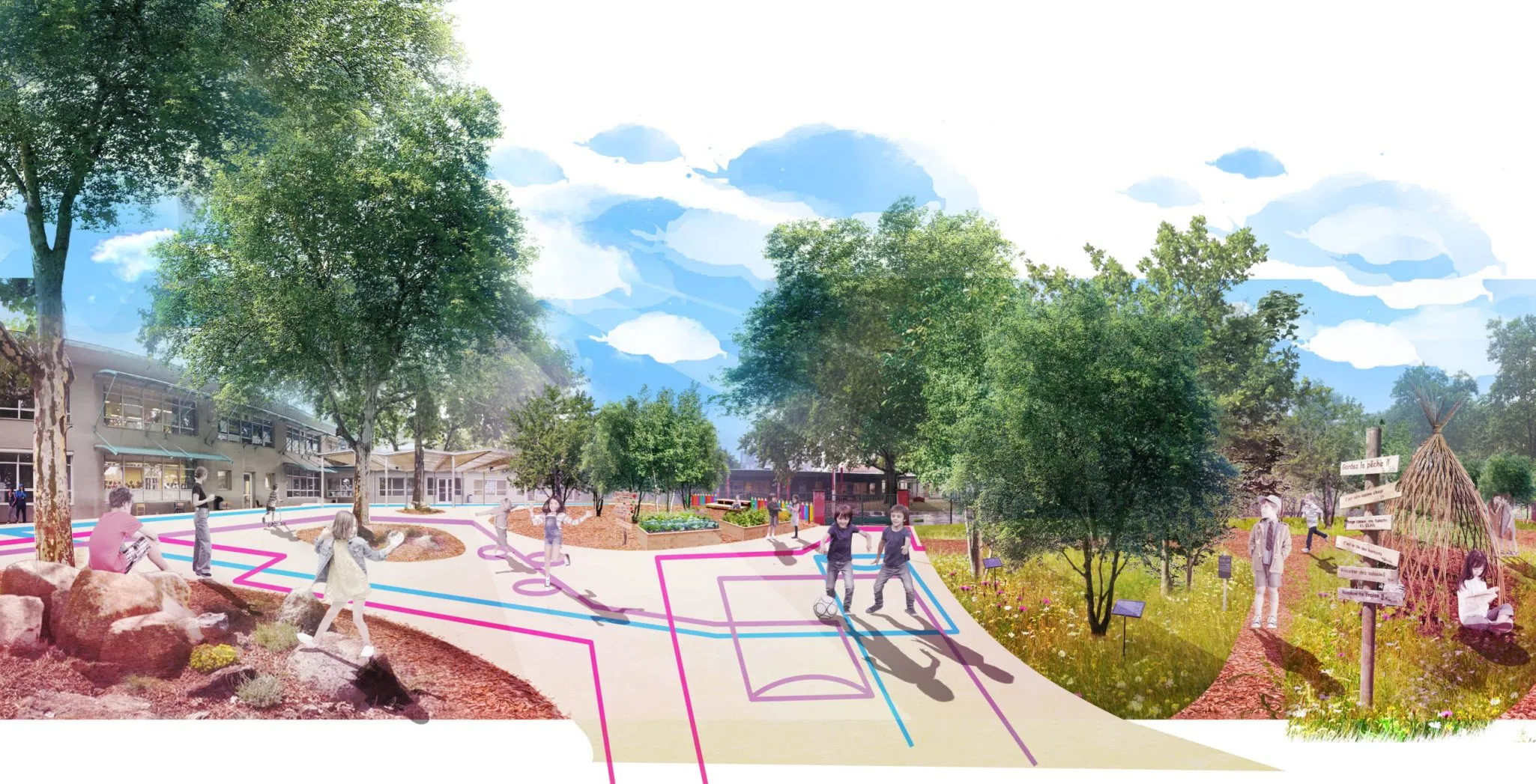The transformation of school grounds has become a crucial issue in the face of growing climate challenges. These spaces, with their complex uses, functions and restrictions, are now important sites for action to promote the ecological transition of towns and cities. By combining the objectives of planting, depaving and desilting, these changes provide an opportunity to examine the position of children in terms of play, learning, sport, motor skills and environmental awareness.
Through co-construction meetings and active participation, environmental issues, combined with a consensus on the need for change, become effective levers for involving all stakeholders, whether they are institutions, pupils or parents, in the creation of a common project that is accessible to all.
In some cases, these transformations must include, in their design, policies aimed at optimising urban open spaces, thus enabling the courtyards to be oriented outwards, to the benefit of the residents and users of the neighbourhood, especially during the summer periods, thus offering new islands of nature and coolness. School grounds are also an essential link in larger-scale vegetation and development policies, offering opportunities to extend into immediate public space, at street, neighbourhood and even community level.
Local municipalities, as contracting authorities, are becoming increasingly involved in this transformation of spaces. One example is the city of Lyon, where setec international and setec als have signed a contract for the complete management of school grounds and crèches in the 8th arrondissement.
Under a number of contracts with the Territorial Bank (Banque des Territoires), Setec Organisation provides customised assistance with project prioritisation, decision-making and financial structuring, as well as technical assistance with the launch and design of pilot projects. These operational assistance missions to municipalities within the Heart of the City programme helping them implement their climate change adaptation projects are co-financed by the European Investment Bank (EIB) through the SGREEN+ platform.
After mapping heat islands, identifying opportunities for action and helping municipalities choose priorities, the setec organisation teams and setec international landscape architects are working on a number of vegetation and school ground redevelopment projects in Carpentras, Bayonne and Millau in France. These areas, which are sensitive to a wide range of technical, social, financial and project governance issues, represent a challenge for setec’s programmers, engineers and landscape designers.
